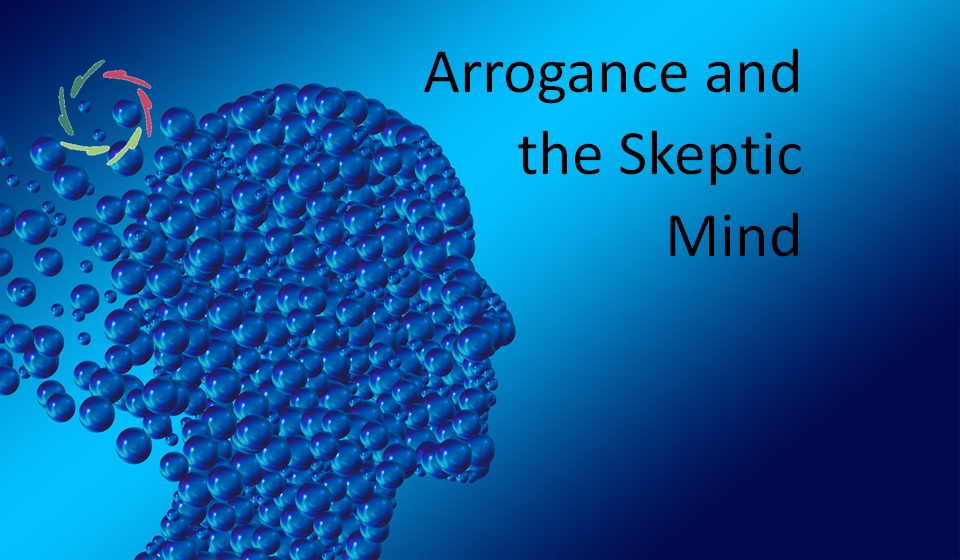Arrogance and the Skeptic Mind

Arrogance doesn’t invite skepticism. On the contrary, yet it sometimes appears to go together. Even more, it sometimes appears to be an indispensable combination.
And that’s a bad thing for skepticism.
Internally, because an arrogant attitude doesn’t optimally invite one to keep thinking. Now, that is precisely what a skeptic mind does: keep thinking. You might have the best arguments in the world – keep thinking.
Externally, because an arrogant attitude doesn’t optimally provoke the victims to start thinking more rationally. On the contrary, this hardens standpoints on both sides. Don’t take my word on this. Just look at what happens. Much of the social media flow makes it even worse.
On top of this, it also negatively affects the own group members who do not dare to come out with any disagreement.
So, where is the skepticism?
Arrogance breeds arrogance.
“Let the most arrogant party win” is not a scientific attitude. Eventually, it comes down to bullying.
Ah, and what about taking action?
Of course, action is crucial.
AND it’s essential to keep thinking. For instance, while you act, others might keep thinking for you. But if you put your conclusion with arrogance, others will be afraid to speak out and even think straight for fear of convincing oneself of a challenging disaccord.
That is what I see happening over and over again in groups of ‘skeptic minds.’
Why do I use parentheses?
Arrogance is the reverse of a skeptic mind.
It’s worse than just incongruent. The first and foremost aim of science is to get beyond simply common sense. That is, for instance, how our present-day medical science started. Before that, it was common sense that leeches, venipunctures, colored water, etc., were good medicine.
Arrogant quacks kept selling all this until science showed the wrongness. Unfortunately, regular medics of the past did the same. Keep thinking. Medical science, as back then, still might be very wrong in an essential way, such as by confusing rationality with conceptuality. [see: “Rational versus Conceptual“] Interestingly, such confusion itself engenders arrogance with possibly detrimental consequences.
Also, keep being skeptical towards yourself, even if it makes you run into fundamental problems. [see: “The Problem of the Skeptic“]
AURELIS
I do my best to never be arrogant in my writing and even thinking. I hope this will always be an AURELIS-minded attitude.
That doesn’t mean one should be emotionless. Even in scientific writing, one should be able to express emotions. They’re there anyway, so it’s more scientific to show them rather than to keep them implicit. I hope ‘science without emotions’ will be lousy science soon enough. But that’s another story.
When being treated arrogantly,
one should not become arrogant as a defense. I see no point in it.
Arrogance breeds arrogance.
It’s much better to show your skeptic (therefore non-arrogant) mind. Emotions may be part of this. An arrogant adversary may not listen. Well, he may not listen anyway. Therefore, never mind.
Please keep thinking and be genuinely skeptical ― always.


